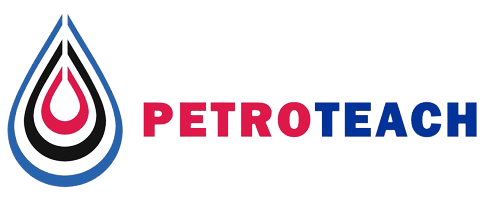GEO 117
Carbonate Depositional Systems and Reservoir Sedimentology
The course provides a comprehensive foundation from the rock to the seismic scale in the concepts, terminology and models used to characterize carbonate reservoirs.


The course provides a comprehensive foundation from the rock to the seismic scale in the concepts, terminology and models used to characterize carbonate reservoirs.

| Code | Date | Location | price (€)* |
|---|---|---|---|
| GEO 117 | 17 - 20 Mar 2025 | Online | 1990 |
| GEO 117 | 8 – 11 Sep 2025 | Online | 1990 |
| GEO 117 | 3 - 7 Feb 2025 | London | 3990 |
| GEO 117 | 4 – 7 Aug 2025 | Abu Dhabi | 3990 |
* Prices are subject to VAT and local terms. Ph.D. students, groups (≥ 3 persons) and early bird registrants (8 weeks in advance) are entitled to a DISCOUNT!
The course provides a comprehensive foundation from the rock to the seismic scale in the concepts, terminology and models used to characterize carbonate reservoirs. The basic principles taught in the course provide a framework to understand the nature of carbonate heterogeneity and to help to for improving exploration success.
The course introduces basic concepts in the analysis of carbonate rocks, discusses criteria to recognize their depositional systems and sequence stratigraphy, shows their alteration during diagenesis, and documents their porosity-permeability characteristics. Participants will learn to identify controls on heterogeneity and associated risk factors through the discussion of case studies of carbonate petroleum systems which highlight processes operating at different scales
o Introduction to carbonate systems
o Principles of carbonate production
o Controls over carbonate deposition
o Skeletal, non-skeletal and microbial carbonates
o Classification of carbonate rocks
o Exercise on carbonate classification
o Contrasting carbonates and clastic systems
o From rock type to facies types
o Carbonate depositional models
o Examples of carbonate systems I- carbonate facies in tropical reefal settings
o Exercise to assess controls over the spatial distribution of facies types in a tropical setting
o Examples of carbonate systems II- carbonate facies in ramp settings
o Exercise to assess controls over the spatial distribution of facies types in a ramp setting
o Stratigraphic architecture of carbonate systems
o Controls over large-scale accumulation of carbonate systems o Description of stratigraphic architecture and discussion on controls over the spatial and vertical distribution of facies types
o Challenges in correlations
o Contrasting and comparing Carbonate Facies types through geological time- Cenozoic, Mesozoic, Paleozoic examples
o Impact of biota, on facies types and stratigraphic architecture
o Carbonate systems in different tectonic settings
o Examples of carbonate systems III –Carbonates and clastics-Triassic, Jurassic and Cretaceous
o Exercise on a mixed carbonate clastic setting
o Diagenesis
o Examples of carbonate systems IV – Carbonates and evaporates- Paleozoic and Miocene
o Rock types, pore spaces and petrophysics
o Origin of porosity in carbonate rocks
o Classification of Pore Spaces
o Pore spaces and permeability
o Methods in petrophysical characterization
o Rock typing
o Data integration and best practice approach

Professor Maria Mutti has over 35 years of experience in the study of carbonate rocks. Dr. Mutti holds degrees for the University of Bologna (Laurea in Geosciences 1987), University of Wisconsin-Madison (MSc Geology 1990), and University of Milanm (PhD 1992). Maria is Chair of Sedimentology at the University of Potsdam since 2002 and has previously held faculty appointments at the University of Southern California (Los Angeles) and research appointments at ETH Zürich and Woods Hole Oceanographic Institution, where she managed the research planning of the International Ocean Drilling Program. She has extensive experience in outcrop and subsurface studies and has worked on carbonate rocks and reservoirs in many basins worldwide. Maria has served in many international committees and societies and has President of SEPM (Society for Sedimentary Geology). Maria has over three decades of experience in consulting, training and development of research programs in applied carbonate sedimentology.
The course is designed for Petroleum Engineers, Drilling Engineers, Geologists, Petrophysicists, Geo-modelers, Reservoir Engineers, Management and Simulation and assumes little prior knowledge in carbonate geology.
Intermediate to Advance
After completing this course, participants will be familiar with the following:
o Principles of carbonate deposition, components, textures and classifications
o Overview of carbonate facies types, depositional settings, and models
o Controls over stratal architecture and depositional sequences
o Contrast to clastic systems
o Diagenetic process
o Controls over Porosity and Permeability
o Methods of data integration
Registration is now OPEN!
* Prices are subject to VAT and local terms. Ph.D. students, groups (≥ 3 persons) and early bird registrants (8 weeks in advance) are entitled to a DISCOUNT!
For more details and registration please send email to: register@petro-teach.com
Would you like a PetroTeach training course delivered at a time or location to suit you?
click for request in house